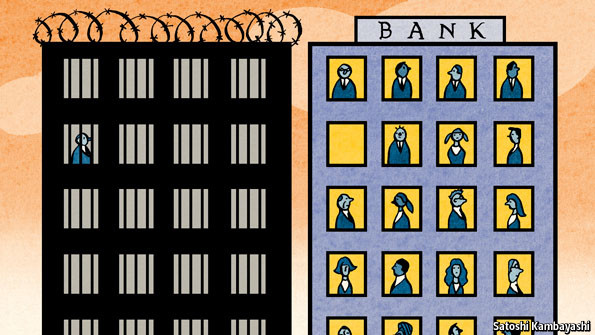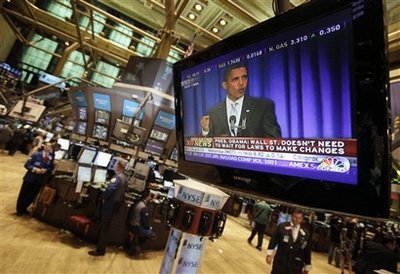“What’s interesting about the Madoff scandal, in retrospect, is how little interest anyone inside the financial system had in exposing it…OUR financial catastrophe, like Bernard Madoff’s pyramid scheme, required all sorts of important, plugged-in people to sacrifice our collective long-term interests for short-term gain. The pressure to do this in today’s financial markets is immense. Obviously the greater the market pressure to excel in the short term, the greater the need for pressure from outside the market to consider the longer term. But that’s the problem: there is no longer any serious pressure from outside the market.“
In an extended NYT editorial, authors Michael Lewis and David Einhorn survey recent economic developments with an eye to the broader problem: a financial institutional culture that fosters and legitimates idiotic amounts of risk. “The fixable problem isn’t the greed of the few but the misaligned interests of the many…The tyranny of the short term has extended itself with frightening ease into the entities that were meant to, one way or another, discipline Wall Street, and force it to consider its enlightened self-interest.“
Among the culprits in Lewis and Einhorn’s worthwhile dissection: the credit rating agencies. “In pursuit of their own short-term earnings, they did exactly the opposite of what they were meant to do: rather than expose financial risk they systematically disguised it. ” See also: the S.E.C. “Created to protect investors from financial predators, the commission has somehow evolved into a mechanism for protecting financial predators with political clout from investors…And here’s the most incredible thing of all: 18 months into the most spectacular man-made financial calamity in modern experience, nothing has been done to change that, or any of the other bad incentives that led us here in the first place.“
It’s not all doom, gloom, and (highly justified) finger-pointing. In part two of the editorial, Lewis and Einhorn offer some quick fixes to our current institutional myopia that should be relatively simple to put through…in a perfect world. “The funny thing is, there’s nothing all that radical about most of these changes. A disinterested person would probably wonder why many of them had not been made long ago. A committee of people whose financial interests are somehow bound up with Wall Street is a different matter.“



